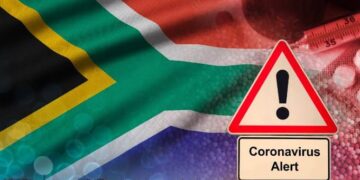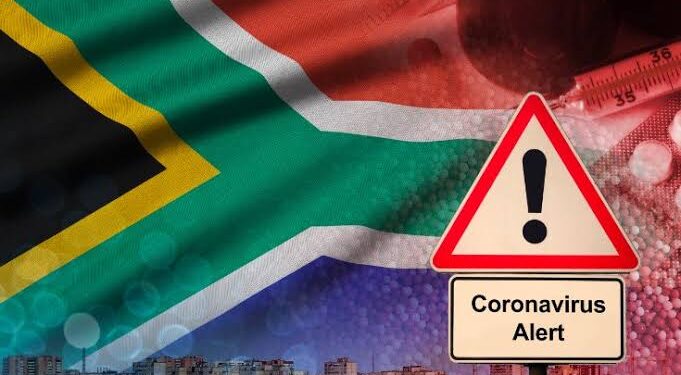By Emmanuel Nduka
The South African Government has scrapped isolation and testing of persons without symptoms of COVID-19, on grounds that developments around the virus justified a shift from containment measures towards mitigation.
In Africa, South Africa has led the continent in terms of COVID-19 cases and deaths, as well as vaccinations, and its experience has been closely watched around the world after it was among the first countries to identify the more transmissible Omicron variant.
“Asymptomatic individuals who had been in contact with a case of COVID-19 no longer had to isolate but should monitor for symptoms for 5-7 days and avoid attending large gatherings,” the country’s Health Ministry said.
It said only persons who developed symptoms needed to get tested, adding that those with mild symptoms should isolate for eight days and severe cases for 10 days.
All quarantine in facilities outside the home would be stopped, it continued, while contact tracing efforts would also be scrapped aside from in specific scenarios such as cluster outbreaks.
The move was “based on advice from our scientists that it is not really having an impact anymore,” Deputy Health Minister Sibongiseni Dhlomo told local broadcaster SABC, adding it did not replace existing guidance on things like social distancing and mask wearing.
According to the department, factors that influenced the move included: the emergence of highly infectious variants like Omicron; estimates that at least 60% of the population have some protection from vaccination or infection; and new information including on the high level of asymptomatic cases and small number of actual cases diagnosed.
Dhlomo said vaccination rates among the country’s high risk populations were 66% in those over 60 years old and 63% in 50-59-year-olds.
SA’s National Institute for Communicable Diseases, Harry Moultrie, backed the changes, stating that: “South Africa cancels contact tracing and quarantining and pivots to mitigation. Good decision”.
In a Christmas Eve address, Deputy President David Mabuza said the country had come a long way since the start of the pandemic.
“We have edged closer to reclaiming our normal lives and freedoms,” he said, encouraging more people to get vaccinated.
New cases of the virus have already peaked in the country’s commercial hub of Gauteng, the province of the country where Omicron was first detected, with infections also levelling out in three other provinces.




































